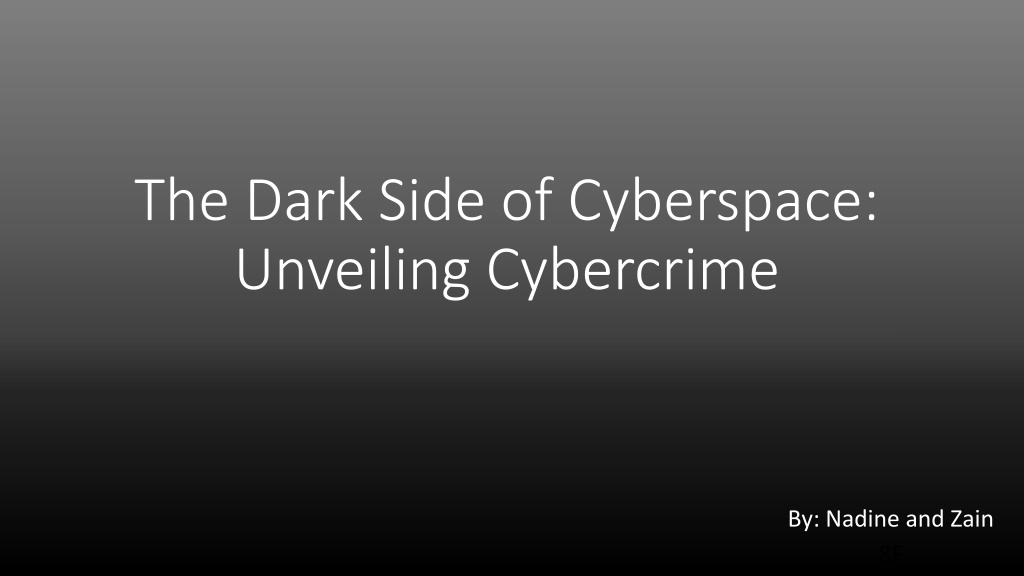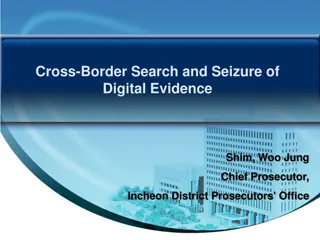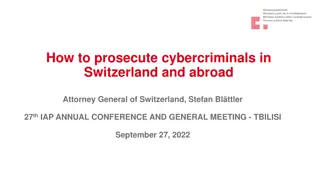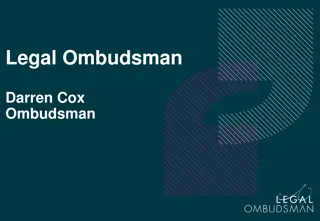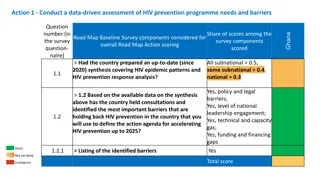Understanding Cybercrime: Types, Prevention, and Legal Implications
Cybercrime encompasses a range of criminal activities involving computers and the internet, including hacking, identity theft, fraud, and more. It's crucial to be vigilant and informed to safeguard against cyber threats. This article explores the types of cybercrime, preventative measures, legal consequences, and the impact on businesses, emphasizing the importance of cybersecurity awareness in today's digital landscape.
Download Presentation

Please find below an Image/Link to download the presentation.
The content on the website is provided AS IS for your information and personal use only. It may not be sold, licensed, or shared on other websites without obtaining consent from the author. Download presentation by click this link. If you encounter any issues during the download, it is possible that the publisher has removed the file from their server.
E N D
Presentation Transcript
The Dark Side of Cyberspace: Unveiling Cybercrime By: Nadine and Zain 8F
Introduction to Cybercrime Cybercrime is a broad term that encompasses any criminal activity involving computers, networks, and the internet. It can involve hacking, identity theft, fraud, and more. Cybercrime is a growing problem in today's digital world, and it's essential to stay informed and vigilant to protect yourself and your data.
Types of Cybercrime Cybercrime can take many forms, from the relatively harmless to the extremely malicious. Common types of cybercrime include hacking, phishing, malware, and ransomware. Other cybercrimes can include identity theft, fraud, and cyberbullying. All of these types of cybercrime can have devastating consequences for victims, so it's important to be aware of them.
Preventing Cybercrime There are several steps you can take to protect yourself from cybercrime. Make sure to use strong passwords, avoid clicking on suspicious links, and be aware of phishing scams. You should also use antivirus software, keep your software and operating system up to date, and regularly back up your data. Taking these steps can help keep your information and data safe.
Cybercrime Laws Cybercrime is a serious offense and is punishable by law in many countries. In the US, the Computer Fraud and Abuse Act outlines the penalties for cybercrimes, including fines and imprisonment. Other countries have similar laws, and in some cases, the penalties for cybercrimes can be even harsher. It's important to be aware of the laws in your country to protect yourself from prosecution.
Cybercrime and Businesses Cybercrime can have a devastating effect on businesses, as it can lead to data breaches, financial losses, and reputational damage. Businesses should take steps to protect themselves from cybercrime. This can include using strong security measures, training employees on cyber security, and having effective incident response plans in place. Taking these steps can help businesses protect themselves from cybercrime.
Conclusion Cybercrime is a growing problem in today's digital world, and it's essential to stay informed and vigilant. There are steps you can take to protect yourself and your data from cybercrime. Businesses should also take steps to protect themselves, such as using strong security measures, training employees, and having effective incident response plans in place. Taking these steps can help protect against cybercrime.
